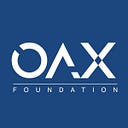
Positioning KYC and Responsibility in a DeFi World
There lies a fundamental question within this decentralized space of where the parameter of “decentralized” sits. As governments and their regulators and agencies continue their progress and encroachment into the crypto space, both sides of the divide must navigate mixed signals, varying degrees of education, plus a fair bit of trial and error.
While the SEC and Coinbase were engaging in a very public tangle earlier last month, many may have missed news that Uniswap has also been speaking with the SEC. According to news reports, the SEC has been working to understand how Uniswap runs, how they’ve positioned themselves within the market and their communications efforts. This news is an important signal that decentralized platforms are moving into the forefront of broader government and regulatory considerations.
For those that have been drawn to the idea of decentralization and removing the need to rely on a single authority or entity to oversee the flow of information, the question often asked is whether the decentralized nature of these platforms automatically the equivalent of anonymity? What are (or should be) the responsibilities for platforms like decentralized exchanges when it comes to KYC? Particularly following FATF updated guidance from earlier this year and the growing regulatory interest, the question of responsibility needs to be further examined, leaving platforms and users alike with uncertainty on what requirements will be enforced in the future.
At OAX, we believe in decentralization and the technology that can benefit the wider mainstream community. However, working with governments and regulators, and helping to establish the framework for compliance will also in the long run help with the integration of digital assets in the community. The idea of not sending funds to an account that has been flagged in the past for criminal activity, is not, and should not be something that is ignored. Even in such a hypothetical situation, knowing details such as who the account belongs to and which crime it was associated with may not matter, but receiving the red flag and doing further due diligence protects the user without disclosing personal information. Just because the technology is decentralized, doesn’t mean that the users using the platform should be put at higher risk, nor should it mean that the platforms are opened to use for nefarious purposes.

So what do we see as a potential solution? There are many proposed solutions in play, ranging from the development of “safe” wallets which have been verified, token/chain verification projects, all the way through to the creation of enormous databases to identify all wallets which are considered to be “clean”. Whilst these projects are all ongoing, through development work of our own and our partners, we’re well aware that coding work for any new platform and solution is a mountain to conquer. Many of the ideas and processes we’re working on don’t exist in the market yet and figuring out new technology and new business processes is difficult as is. And it goes without saying that time spent on closing security loopholes, thus reducing the number of headlines reporting on hacks would benefit the industry immensely. To place a KYC/AML layer would likely hinder development growth, minimize the importance of its role, and conflict with the decentralized consideration that not everything needs to be centered with one entity.

One of our more recent articles highlighted the trend of KYC platforms. The potential of working with specific KYC platforms allows versatility and quicker adaptability to ever changing regulatory environments. By supporting those like our long-term partners, Solidus Labs and Blockpass, we can encourage cooperation between these companies and the sharing of responsibilities to cover different areas of the ecosystem. We reduce the risk of placing the burden solely on just one platform, thereby also (hopefully) reducing the risk of failure. The future of decentralization and the direction of digital assets in the future means that we shouldn’t have to rely on any single source or entity, but in order to make that work, it also means that we will all have to work together to bring it all together.
More about OAX Foundation:
Website: www.oax.org
Reach out to OAX Foundation via e-mail:
Info@oax.org
Social Media:
Twitter: www.twitter.com/OAX_Foundation
LinkedIn: www.linkedin.com/company/oax-foundation/
BitcoinTalk: www.bitcointalk.org/index.php?topic=1943946
Reddit: www.reddit.com/r/OpenANX/
Telegram English: http://bit.ly/OAXTGEn
